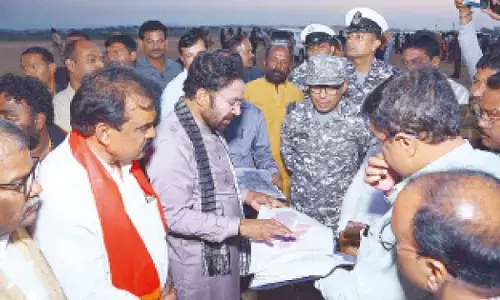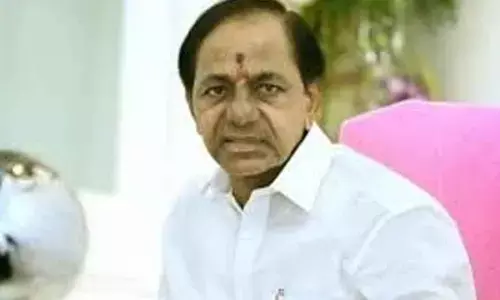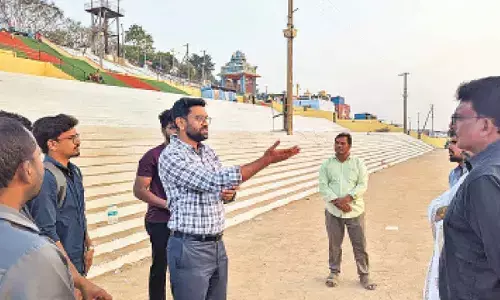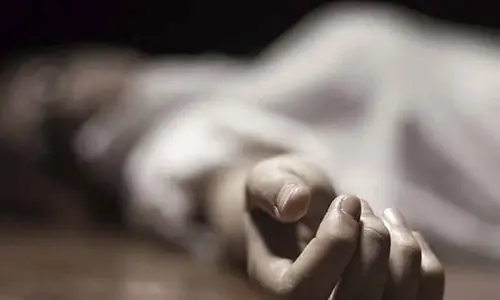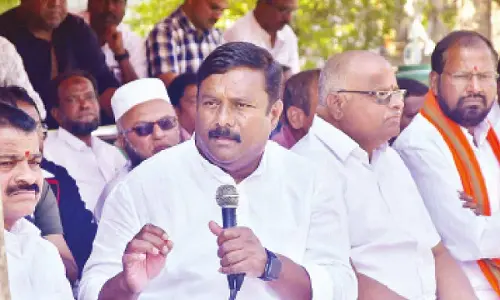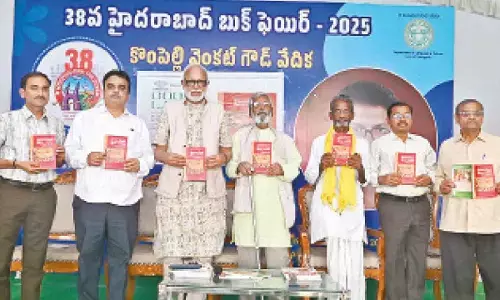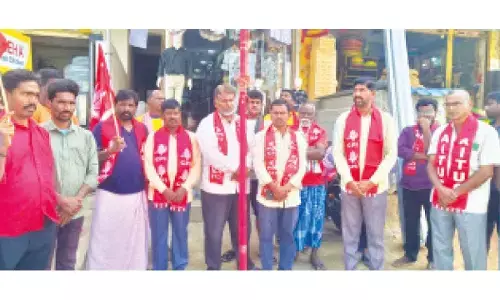What Modi and Kalam had in common
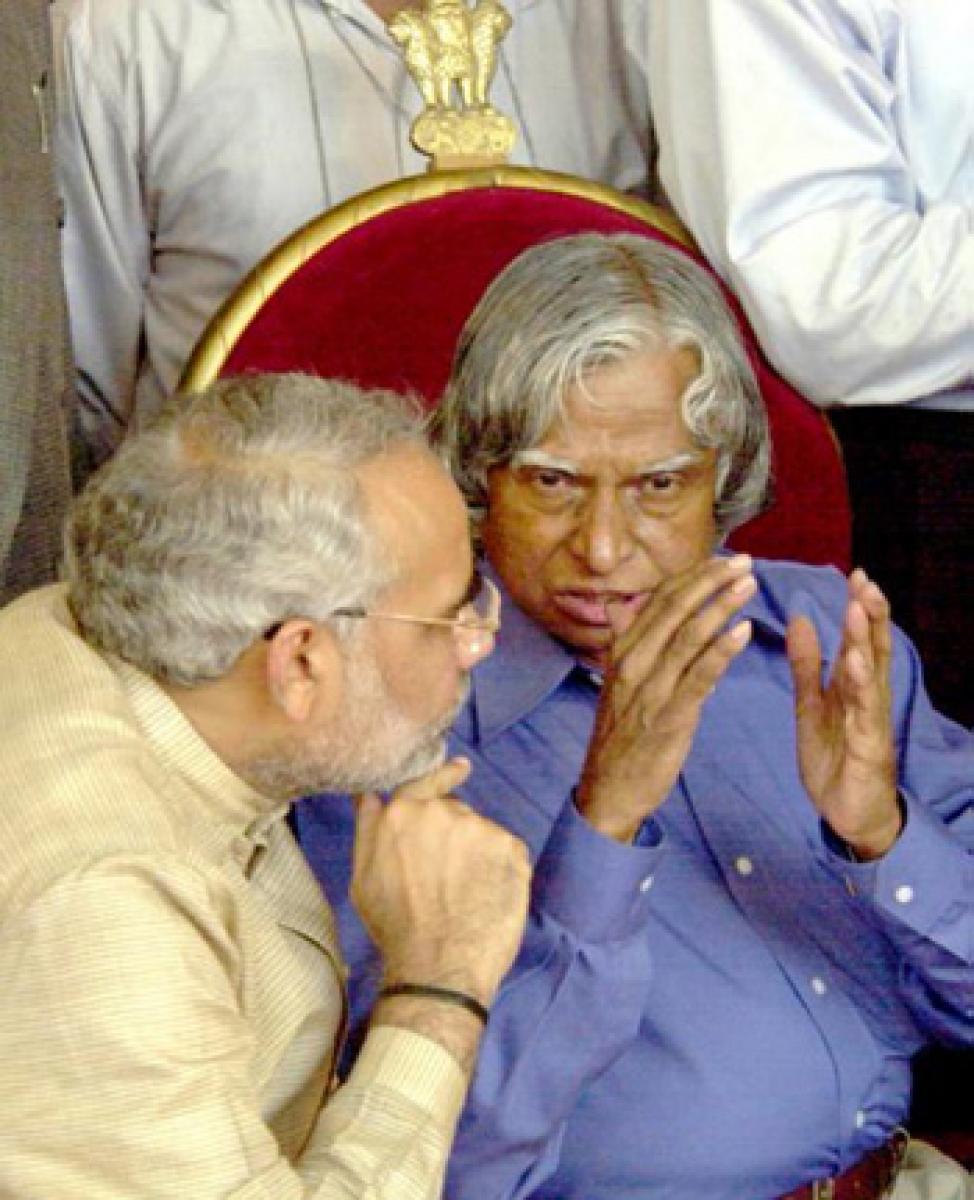
What Modi and Kalam had in common. A person Prime Minister Narendra Modi has to be indebted for his rise from the debacle of the 2002 Gujarat riots is the man who was laid to rest in Rameshwaram on July 30.
 A person Prime Minister Narendra Modi has to be indebted for his rise from the debacle of the 2002 Gujarat riots is the man who was laid to rest in Rameshwaram on July 30. It is no surprise that Modi paid his respects to APJ Abdul Kalam three times after his body landed from Shillong.
A person Prime Minister Narendra Modi has to be indebted for his rise from the debacle of the 2002 Gujarat riots is the man who was laid to rest in Rameshwaram on July 30. It is no surprise that Modi paid his respects to APJ Abdul Kalam three times after his body landed from Shillong.
When Modi was an "untouchable" for the left-liberal community, that was small in size but big when it came to controlling the levers of power in Delhi, Kalam was one of the first to hold his hand, by allowing himself to be positively identified with him during his officials trips to Gujarat as President. So it was not without reason that Modi called him "Marg Darshak".
Reportedly, Kalam overruled the then Prime Minister Atal Bihari Vajpayee's suggestion to be cautious while visiting Ahmedabad soon after taking over in July 2002, when the scars of the Gujarat riots were still fresh. But true to Kalam’s image, he decided to visit. And his visit worked as a balm on the seared psyche of the people of the state.
The atmosphere of communal rancour that the Godhra carnage and the subsequent anti-Muslim riots had created was such that even LK Advani, a Member of Parliament from Gujarat, didn’t visit the state for almost two months till he paid a formal visit after the Godhra carnage.
Significantly, at a time when some of Modi's own party men were not willing to hold his hand, Kalam had somewhere seen Modi’s potential as a good administrator, with innovative ideas for good governance, during his conversations with him.
Modi was lucky that Kalam had a special connection with Ahmedabad because of the institutions of higher education based in the city, like the ISRO Space Application Centre (SAC), IIM-A and Physical Research Laboratory. In his tribute to Kalam, Modi said, “He was a great source of inspiration. My mind is filled with so many memories, so many interactions with him."
I, as a senior journalist covering Gujarat for India Today, was fortunate enough to know about these interactions which Modi had often shared with me. As I understand from those talks, the meeting ground between the two was a commonality of thoughts regarding the national agenda.
The two believed that youth and science should be the centre-pieces of the national regeneration process along with measures to curb corruption. There should also be an optimum use of technology to help in good governance and eradicate corruption.
Modi, on his part, made special efforts to apprise Kalam from time to time about innovative steps in governance he was taking, particularly the use of technology till well after Kalam had ceased to be the president.
So, it didn’t come as a surprise when Kalam was almost as happy as Modi at the 2006 dedication of Modi’s landmark Jyotirgram scheme to give 24-hour, three-phase domestic power supply to all the 18,000 villages in the state.
The scheme finally established Modi as an icon of development and triggered a process that largely helped him overcome the 2002 image of a Muslim-hater and triggered his march towards prime ministership…
But despite his closeness with Modi, Kalam maintained a strong sense of propriety. When I sent him a message in February 2014 requesting him to release my book on Modi’s governance in Gujarat titled ‘Centrestage: Inside the Narendra Modi model of governance,’ along with India Today’s editor-in-chief Aroon Purie, Kalam’s personal staff got back to me after a few days declining politely.
My inquiries later revealed that he declined because he didn’t want to give the book a political colour since it was being released before the May 14, 2014 elections. That was Kalam, correct to the last.
By Uday Mahurkar


